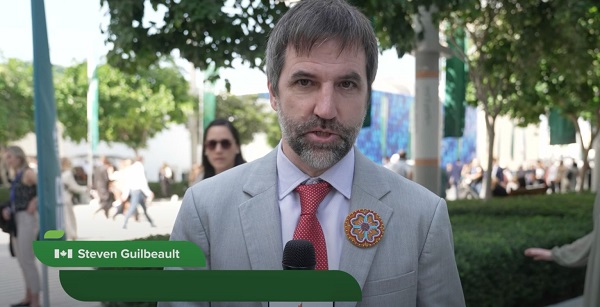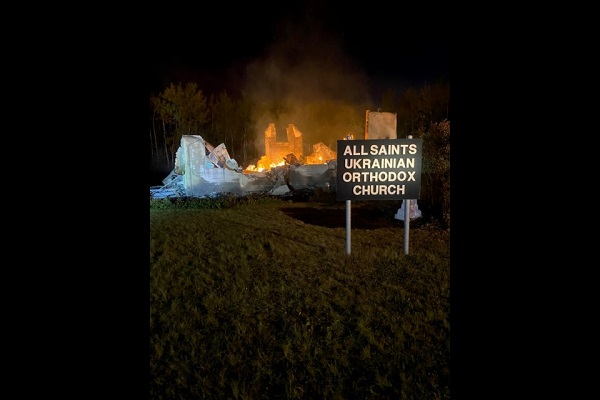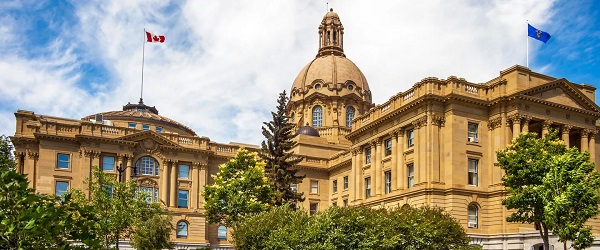National
Canada’s birth rate plummets to an all-time low

From LifeSiteNews
Nine of Canada’s 10 provinces and three territories saw record-low fertility rates in 2024
Canada’s birth rate has plunged to an all-time low for the second year in a row and shows no signs of improving anytime soon.
According to Statistics Canada’s latest births and stillbirths’ data from 2024, the nation’s official fertility rate is 1.25 children per woman, lower than in 2023, which was 1.26 children per woman.
Overall, this is a 1.6 percent decrease from the previous year and is on par with data since 2009, which is the year the nation’s birth rate started a slow and steady decline.
As it stands now, Canada is not unlike European countries such as Italy and Switzerland, as well as Japan in that it’s considered to be an “ultra-low fertility” nation.
Nine of Canada’s 10 provinces and three territories saw record-low fertility rates in 2024. The province with the lowest rate is British Columbia at 1.02, followed by Nova Scotia at 1.08, Prince Edward Island at 1.10, and Ontario at 1.21.
Quebec stands at 1.34, the Northwest Territories at 1.39, Alberta at 1.41, Manitoba at 1.50, and Saskatchewan at 1.58. The territory of Nunavut is at 2.34.
In order for a country to maintain its population, the birth rate must be 2.0 or higher, with it needing at least 2.1 births per woman for a nation to grow, irrespective of immigration.
Not only are Canadian women having fewer babies, but the average age of childbearing has gone up. It now stands at a record high of 31.8 years. By comparison, it was 26.7 in 1976.
In total, there were 368,928 babies born in Canada from 2024 to 2025, a number that would be much greater if not for abortion. For context, in 2022, 97,211 Canadian babies were aborted.
When looking back, Canada’s fertility rate hit an all-time high of 3.94 children per woman in 1959. The birth rate then plummeted after the introduction of the birth control pill in the 1960s. The birth control pill was decriminalized in Canada in 1969.
Overall, Canada’s birth rate has declined for decades. Canada’s current Liberal federal government of Prime Minister Mark Carney, like Prime Minister Justin Trudeau before him, has been heavily promoting contraception and abortion and using immigration as a means of growing the population.
As noted by LifeSiteNews’ Jonathon Van Maren, a recent scheme by the Trudeau Liberals to offer free contraception to all Canadians will only worsen Canada’s current demographic crisis.
As reported by LifeSiteNews, the reality is that due to abortion, birth control, and the fact that fewer people are starting families, Earth’s population will hit a “peak” before the end of the century, with most nations facing sharp population declines in the next 25 years.
Even secular Canadian academia has warned that the country is facing a population crisis, with the Macdonald-Laurier Institute saying earlier this year that the nation’s drop in fertility is “a major public policy challenge requiring immediate federal action.”
Business
Bill C-8 would allow minister to secretly cut off phone, Internet service

From the Canadian Constitution Foundation
“I worry that this law could be used to secretly cut off political dissidents from their phone or Internet service on the pretense that they may try to manipulate the telecom system”
The Canadian Constitution Foundation is concerned about the civil liberties implications of the Carney government’s proposed cyber security bill, C-8, which would allow the minister of industry to secretly order telecommunications service providers like Telus, Bell and Rogers to stop providing services to individual Canadians.
The minister would be allowed to make such an order if she has “reasonable grounds to believe that it is necessary to do so to secure the Canadian telecommunications system against any threat, including that of interference, manipulation, disruption or degradation.”
An individual who does not comply, including by failing to keep the order secret, could face fines of up to $25,000 for the first contravention and $50,000 for subsequent contraventions. Businesses could face fines of up to $10 million for the first contravention and up to $15 million for subsequent contraventions.
The orders would remain secret indefinitely, with the minister required only to present an annual report to Parliament on the number of orders made and her opinion on their necessity, reasonableness and utility.
CCF Counsel Josh Dehaas said that the power to cut off the Internet or cellphone service of Canadians is a “very serious power that requires very strong safeguards, which are presently lacking in the bill.”
“While this power may be necessary in some cases to prevent cyber attacks, it also poses serious risks to civil liberties,” Dehaas said. “I worry that this law could be used to secretly cut off political dissidents from their phone or Internet service on the pretense that they may try to manipulate the telecom system,” Dehaas explained. “Such an action would violate our most cherished freedoms including free speech.”
CCF Litigation Director Christine Van Geyn said that the government cannot be trusted with such a power unless proper safeguards are in place.
“You may think that the idea of the government cutting off political dissidents from the necessities of life sounds far-fetched, but that’s exactly what happened during the 2022 Freedom Convoy protests in Ottawa,” she said. “The federal government ordered banks to freeze hundreds of bank accounts without any judicial authorization, cutting protesters off from their money in the middle of a very cold winter.”
“Although the Federal Court agreed with the CCF that freezing bank accounts this way violated the constitutional right to be secure against unreasonable searches and seizures, that kind of damage isn’t easily repaired,” Van Geyn added.
Ottawa has appealed the Federal Court’s finding. The CCF is awaiting a decision from the Federal Court of Appeal.
Dehaas said that Parliament should consider requiring either judicial pre-authorization or an immediate, automatic judicial review of any decision to cut off an individual or business from their Internet or phone.
The CCF is also concerned that Bill C-8 would allow the minister to weaken telecommunications companies’ encryption standards, allowing for unconstitutional access to Canadians’ private information.
Finally, the CCF is concerned that the bill could allow the minister or any person designated by the minister to engage in unconstitutional searches.
Joanna Baron, the CCF’s Executive Director, said that Canadians must be vigilant about their constitutional rights and freedoms because they can be easily taken away, especially in times of crisis.
“I would encourage Canadians to fight for their freedoms, whether it’s by taking the CCF’s free privacy course, signing up for our weekly Freedom Update newsletter or becoming a monthly donor,” Baron said.
“Concerned Canadians are also encouraged to write to their MPs using our form letter, to tell them to amend these bills to ensure Canadians’ rights to privacy and free expression are protected,” Baron added.
Crime
Pierre Poilievre says Christians may be ‘number one’ target of hate violence in Canada

From LifeSiteNews
Anti-Christian hate crimes are not properly documented in Canada, but media reports indicate a continuing wave of violence against churches.
Conservative leader Pierre Poilievre said Monday that Christians may be the “number one” target of hate crimes when asked how he would combat the eruption of attacks on churches in Canada.
“One hundred churches have been burned,” Poilievre said, according to a CBC News report. “Christians may be the number one group that is victims of hate-based violence. But, of course, it’s not politically correct to say that.”
“This anti-Christian hate has got to stop,” said Poilievre, referring to the arson crimes as “terrorist attacks.”
Catholic and Christian churches have seen a spike in arson attacks after a public narrative that Catholic priests had murdered children said to have been found in unmarked graves at the site of Canadian indigenous residential schools run by both the Catholic Church and other Christian churches.
The attacks have reached epidemic proportions. Last week, All Saints Ukrainian Orthodox Church, northeast of Edmonton, was destroyed after being set ablaze by a 23-year-old and a 26-year-old from Saddle Lake First Nation.
At least four other churches in Canada have been set afire this year, according to media reports, including a Catholic church in Saskatchewan, a joint Anglican-Lutheran church in Manitoba, a Greek Orthodox church that had been set afire three other times in recent years, and a Salvation Army church in Newfoundland.
Catholic churches in particular have seen a big spike in violence as compared with previous years, with a jump from 43 police-reported anti-Catholic crimes in 2020 to 155 in 2021, according to Statistics Canada data.
However, hard data on the incidence of overall anti-Christian attacks in Canada is not yet available because the currently cited data on anti-religion hate crimes in Canada does not account for non-Catholic Christian churches.
In recognition of this vacuum, the Evangelical Fellowship of Canada is planning to launch an anti-Christian hate crime tracker.
Poilievre ripped liberals for enabling the rash of church attacks, calling out their policies of reduced penalties for arson, their redirection of resources from police and border services to targeting farmers and hunters, and their “divisive” identity politics.
He said he would take the “opposite approach” if elected prime minister, including “tougher laws” for hate crime perpetrators and redirecting resources away from targeting “sportshooters” and toward police services.
“Because frankly, Canadians of all faiths, including Christians, deserve to worship in peace,” he said.
-

 Business2 days ago
Business2 days agoDominic Barton’s Shadow Over $1-Billion PRC Ferry Deal: An Investigative Op-Ed
-

 Censorship Industrial Complex2 days ago
Censorship Industrial Complex2 days agoCanada To Revive Online Censorship Targeting “Harmful” Content, “Hate” Speech, and Deepfakes
-

 Alberta2 days ago
Alberta2 days agoAlberta refuses to take part in Canadian government’s gun buyback program
-

 Alberta2 days ago
Alberta2 days agoOrthodox church burns to the ground in another suspected arson in Alberta
-

 Fraser Institute1 day ago
Fraser Institute1 day agoAboriginal rights now more constitutionally powerful than any Charter right
-

 Business1 day ago
Business1 day agoNew PBO report underscores need for serious fiscal reform in Ottawa
-

 Alberta1 day ago
Alberta1 day ago$150 a week from the Province to help families with students 12 and under if teachers go on strike next week
-

 Agriculture1 day ago
Agriculture1 day agoCarney’s nation-building plan forgets food





